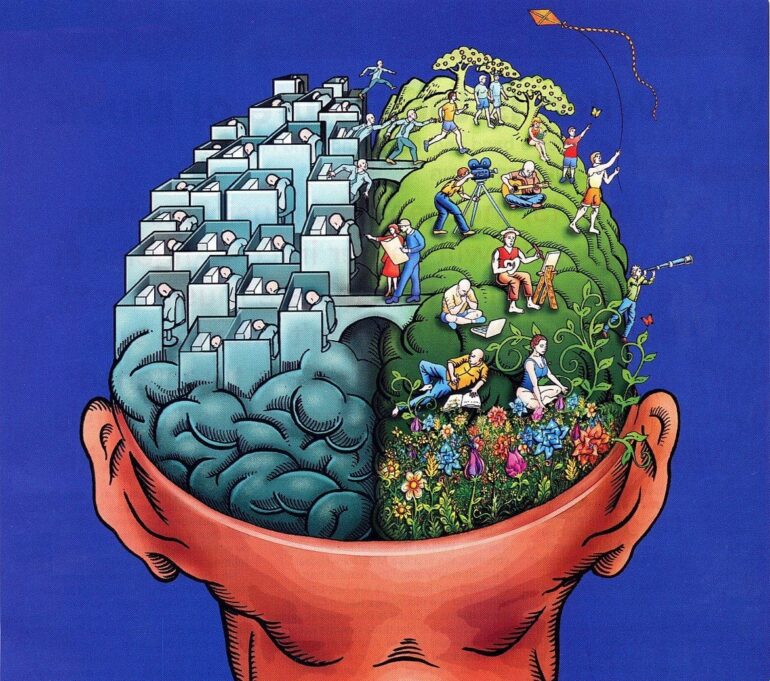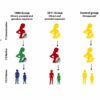
Curious Kids is a series for children of all ages. If you have a question you’d like an expert to answer, send it to [email protected].
How does the brain think? – Tom, age 16, San Diego, California
Have you ever wondered how your brain creates thoughts or why something randomly popped into your head? It may seem like magic – but actually the brain is like a supercomputer inside your head that helps you think, learn and make decisions.
Imagine your brain as a busy city with lots of streets and buildings. Each part of the brain has a specific job to do, just like certain areas of a city or certain buildings serve different purposes. When you have a thought, it’s like a message traveling through the city, passing from one area to another.
As a professor of psychology and neuroscience, I have studied the brain for almost 20 years. Neurologists, neuroscientists and neurosurgeons work every day to understand the brain better. And there’s still a lot to learn.
Your brain has four major compartments, and each compartment has lots of “buildings.”
Practice and repetition create skills
The neuron is a key player in the brain – these are tiny cells that send and receive signals and messages so they can communicate with each other.
Your brain has somewhere between 80 billion and 100 billion neurons. Neurons tend to group together to form neural tracts, which would be like the streets and highways in the city analogy. When you have a thought, neurons in your brain fire up and create electrical impulses. These impulses tend to travel along similar pathways and release tiny chemicals called neurotransmitters along the way.
These neurotransmitters are like the construction crew that builds the roads, making it easier for the messages to be delivered. You can imagine it as a dirt road, but as more traffic – that is, neuron signals – travel the dirt road, the road gets upgraded to a paved street. If the traffic continues, it gets upgraded to a highway.
As you learn new things and experience the world around you, these connections grow stronger. For example, when you are learning to ride a bike, you may be unsteady and find it hard to coordinate all of the different muscles along with your ability to balance. But the more you practice, the more the neurons controlling your muscles and your ability to balance fire together, which makes it much easier as you practice. Neurons are wiring together and forming neural networks.
That’s why practice and repetition are important for improving your skills, whether playing the piano or learning a language. Neural networks are created and then strengthened the more times they communicate together. Scientists have a saying in this field: “Neurons that fire together wire together.” Certain thinking or behavior patterns can be chalked up to this kind of…



